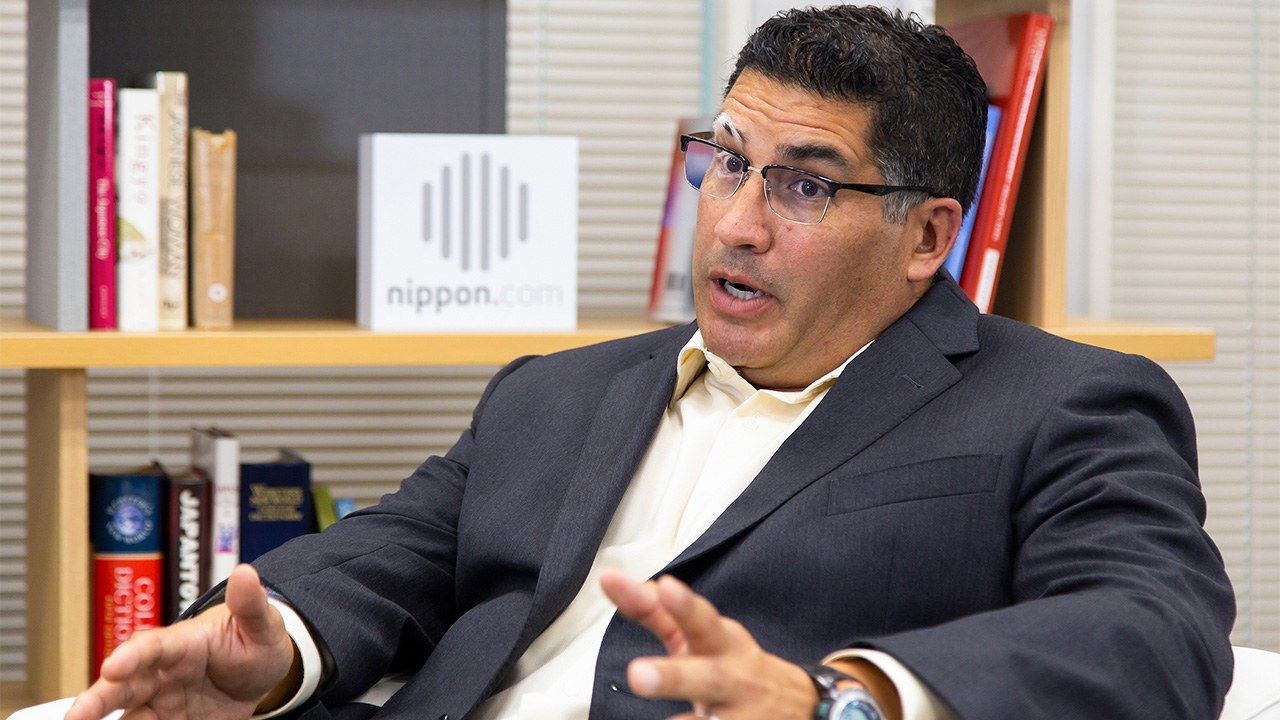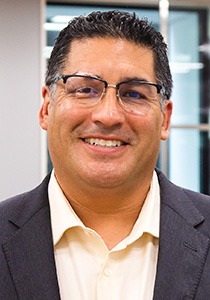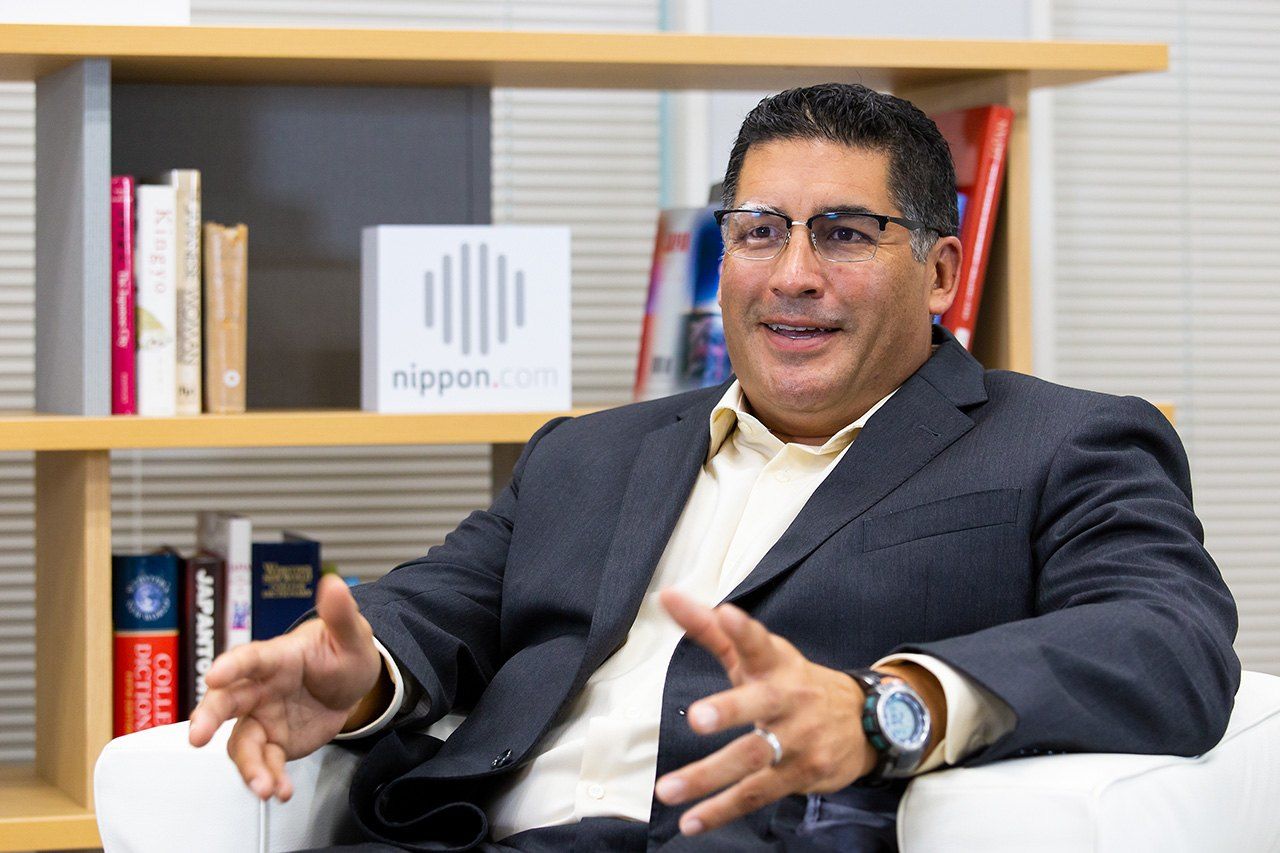
Japan’s Integrated Resorts as Gambling Islands: American Indian Gaming Industry Expert Deron Marquez
Society Economy- English
- 日本語
- 简体字
- 繁體字
- Français
- Español
- العربية
- Русский
Japan is betting big on its recently legalized gaming industry. In July 2018 the Diet approved legislation paving the way for “integrated resorts”—facilities that combine casinos with nongaming amenities like entertainment, hotels, restaurants, and conference facilities. Prime Minister Abe Shinzō promoted the so-called casino bill as part of the administration’s broader goal of growing tourism into an economic pillar.
Under the new law the government will grant three IR licenses. Although authorities are still working out details like locations for the facilities and the regulations to govern their activities, a number of major casino operators have already expressed interest in investing in Japan’s nascent gaming industry.
Casino proponents have emphasized the economic benefits of IRs, particularly as a way to bring new jobs and much-needed revenue to regional economies. However, many in Japan have voiced opposition to gaming out of concerns over gambling addiction and crime.
Dr. Deron Marquez, an authority on North American tribal gaming management, was recently in Japan to speak about American Indian culture. As chairman of the San Manuel Band of Mission Indians from 1999 to 2006, Marquez oversaw tribal gaming operations. We sat down with Marquez at our Tokyo office to discuss what the Native American gaming model offers Japan as it develops its own casino industry.
INTERVIEWER The San Manuel Band of Mission Indians has been at the forefront of tribal gaming for more than two decades. How did the tribe start in the industry, and what has been the trajectory of American Indian gaming in the United States?
DERON MARQUEZ The San Manuel Band of Mission Indians entered the gaming industry in 1985 with just a bingo operation. Since then we have developed into a full-fledged gaming facility. We’re located in southern California and attract clients across the valley, from as far away as Los Angeles and Santa Monica.
The broader history of Indian gaming, though, started in the early 1980s when the Seminole Tribe in Florida began running high-stakes bingo games. State authorities sought to close these games down, but the lower courts ultimately upheld the tribe’s right to establish gambling businesses on tribal land. Then in 1987, the Supreme Court in what is known as the Cabazon case ruled that tribes had the right to operate casinos on reservations.
A year later the US Congress passed the Indian Gaming Regulatory Act, requiring states and tribes to negotiate gaming compacts. The law worked to slow down successful operations by giving states a say in how tribes were going to function in the gaming atmosphere. Some states and tribes got along well, like the Mississippi Band of Choctaw Indians, but relationships were frequently fraught. In California, it took countless court cases and a ballot proposition amending the state Constitution before tribes finally received the right to run gaming operations.
This same drama played out all around the United States. However, tribes have now become partners on many levels, from revenue sharing to local charity, and states are more appreciative of Indian gaming.
INTERVIEWER Japan’s model for integrated resorts has many parallels to the stand-alone operations that are at the center of the American Indian gaming industry. In your view, what are the main issues Japan needs to consider as it develops its IR model?
MARQUEZ Tribal government gaming operations are restricted to reservations and must bring in people to gamble. They are islands. Most of the San Manuel Casino clientele drive in to eat, to gamble, or to watch entertainment. Similarly, Japan is creating these little gaming islands and is looking to bring people in through tourism.
Japanese authorities must consider criteria like infrastructure, open land, and willingness of the community when considering locations, not to mention the overall goal of getting people to the gaming operations. With Indian gaming we have to operate on reservation, but Japan has the ability to find the best locations with the least startup cost.
One of the biggest mistakes would be for Japan to try and compare IRs to established gambling resorts. Japan will be competing on a world stage with places like Las Vegas and Macau, which have operations that are fairly close together. There is a very different appeal compared to the island model. If a customer wants to see a show at one casino and play baccarat at another, there is that ability to be more fluid. IRs can’t replicate that.
Japan will need to come up with a completely new approach to attract visitors. This is going to be even more challenging for operations if the majority of people visiting integrated resorts are going to be foreign travelers. One approach that has worked for San Manuel Casino is giveaways, things like dishware and coffee makers. People love these because they feel value in coming to play. It creates loyalty between the casino and customers who come to gamble. I don’t know how that type of program would work in Japan if the main focus is foreigners, but IRs will need a robust package, something like a certain quantity of free play and a bag of goodies, to lure groups from overseas.
My advice would be: Don’t spread the facilities so far apart that visitors only have one option. I recommend creating more of a campus feeling. There is a fear that having these mega resorts close together will drown surrounding communities, but there should be some connectivity so customers can enjoy one type of experience in the morning and then something different later at another campus; kind of like the concept of Tokyo Disneyland and Disney Sea. This approach will be more beneficial in the long run than integrated resorts that are isolated. I’ve never seen it work the way that the Japanese government is proposing to do it.
INTERVIEWER Japan has taken a similar approach to Singapore in regulating the use of casinos by locals, including charging entrance fees and limiting the number of visits. Do you see any pitfalls to this strategy?
MARQUEZ Running a casino is a square-meter business. As you need to pay for things like labor, infrastructure, and regulations, each section of the floor needs to be generating a set amount for the operation to be profitable. As an example, the San Manuel Casino is roughly 32,500 square meters and has 4,000 slot machines.
According to Japan’s casino law, though, gaming cannot be more than 3 percent of the total space. This is an interesting math equation because the resorts will need to be quite sizable to sustain a gaming floor. This begs the question of how the Japanese tourism bureau is going to attract not just tourists, but gamblers. My guess is that most people who come to Japan want to spend time seeing the sites and eating. Going to a casino is probably not in the forefront of their minds.
One concern from a business perspective is the restrictions on the population. I understand the addictive concerns, but Japan already has an established gambling culture. IRs would just be serving a market that is already there. Profitability is key to every operation and authorities will have to ask if they are marginalizing themselves from day one. I’m not saying abandon the ban, but rethink it.
INTERVIEWER Public disapproval of IRs has remained high. What benefits could authorities play up to win support for resorts?
MARQUEZ There is no doubt that the integrated resorts will provide employment opportunities for young to old people. It takes a large number of people to run these operations. Facilities will also need to hire suppliers, increasing indirect employment. However, it remains to be seen if the jobs will be menial or pay well.
Another benefit of having a community-driven business like a gaming operation is seeing locals working in the facilities. It creates a strong connectiveness to the operation and residents become the best ambassadors to get visitors to come. But you have to get the local community behind the casino first.
The best way is to build transparency by engaging elected officials. People vote for candidates because they believe they share some of the same principles, so it’s important to bring in those officials and show them how the casino works, how surveillance is run, and that there is proper oversight in place.
Japan has legitimate concerns about organized crime infiltrating the casinos. That was a worry with the San Manuel Casino as well. The tribe asked the FBI to come in, and when the facility first opened law enforcement was on the ground floor to make sure no criminal organizations muscled in.
The integrity behind your operation has to start even before the doors open. The locals are your best ambassadors, and if they don’t believe the operation is above board, people from the outside aren’t going to believe it either.
INTERVIEWER What advice do you have for Japanese authorities developing the regulatory side of IRs?
MARQUEZ It’s best for Japan to take a heavy-handed approach to regulations from the start and make adjustments as it goes along. There has to be a positive public perception since no one is going to visit a casino if they don’t think they have a fair chance of winning.
When the National Indian Gaming Commission was created to regulate gambling operations, tribes were already ahead of the curve about best practices and best regulations. You can’t afford to have one slipup that will crush your reputation. There is just no recovering from scandals or the idea that there is cheating going on. Operators must be very mindful of having internal controls in place for things like handling money, hiring people, and conducting background checks.
What I don’t understand, though, is if the Japanese government is the one writing the laws why it doesn’t also want to be the one running the operations. From my experience, the greater the control the operator has, the more potential pitfalls there are. If the operator can find a way to make money without giving the government its cut, such as putting in a pachinko operation nextdoor, they will do it. But if the government is running the operation, it can take more of the revenue.
My experience with Indian gaming gives me a different perspective from the private sector, but to me it makes more sense for the government to create and run the IRs. Japan has its reasons, but outside looking in, it’s hard to understand why Japan decided on taking just a 30 percent cut of revenues. The government already controls the state lottery, but this is the bigger lion.
Even without expertise, the government could keep control the operation by hiring a company to manage it. Many tribes have these management agreements. There are ways to do it, but it takes time and energy. Maybe the Japanese government doesn’t want to deal with it and thought it better to entice business to come in and run these operations.
Perhaps after the initial ten-year contracts are up Japan will change to a different operating company and take a bigger share. As time goes on it’ll be clearer what the government’s plan is.
(Originally written in English based on a July 22, 2019, interview at the Nippon.com studio. Interview and text by James Singleton and photos by Hashino Yukinori of Nippon.com.)

